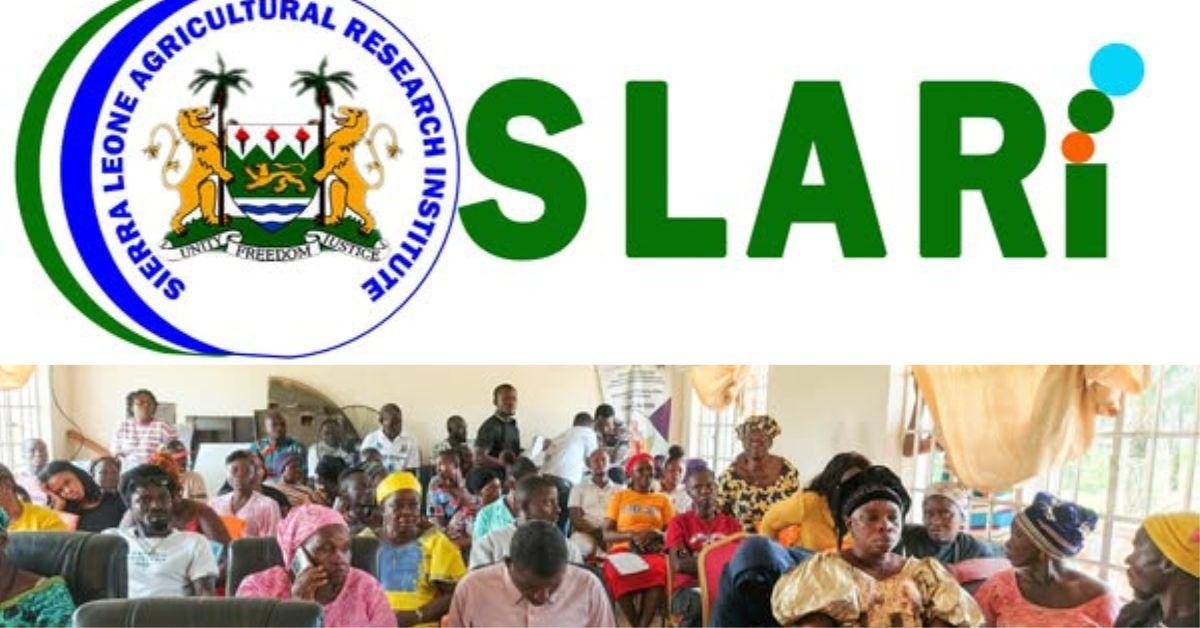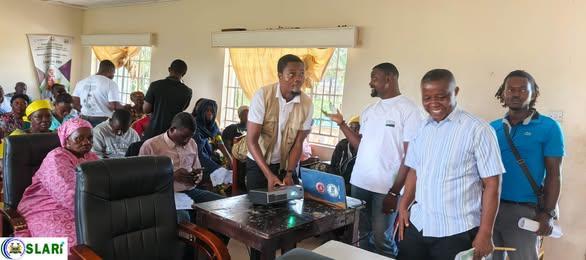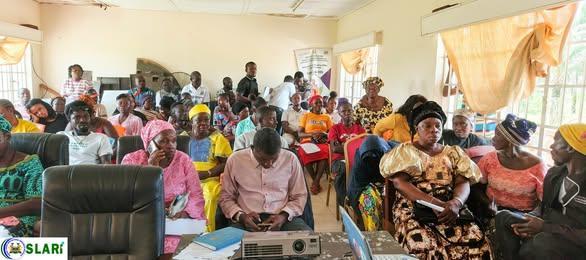Africa-Press – Sierra-Leone. The Food System Resilience Programme (FSRP-SL), in partnership with the International Institute of Tropical Agriculture (IITA), the Sierra Leone Agricultural Research Institute (SLARI), and the Ministry of Agriculture and Food Security (MAFS), has successfully concluded a weeklong training on aflatoxin management for groundnut and maize farmers across Sierra Leone.
The training, held in Moyamba, Bombali, and Kambia Districts, brought together 60 farmers from each district along with agricultural officers from MAFS. The sessions focused on raising awareness about aflatoxin contamination and demonstrating the effective use of Aflasafe a biological control product developed to reduce aflatoxin in maize and groundnut.
Aflatoxins, toxic substances produced by fungi in hot and humid environments, pose serious health risks to humans and livestock, while also undermining food security and crop marketability. Given Sierra Leone’s heavy reliance on groundnut and maize, managing aflatoxin is critical to safeguarding public health and improving farmers’ livelihoods.
Speaking during the program, MAFS representatives reaffirmed the government’s commitment to building resilient food systems through innovation and farmer training. They stressed that aflatoxin management is not only a food safety priority but also vital for improving productivity, enhancing trade competitiveness, and protecting consumer health.
Dr. Patrick Maada Ngegba, SLARI’s technical lead for the program, facilitated hands-on training sessions on the integration of Aflasafe into local farming practices. He guided farmers on application methods, timing, and best agronomic practices, while also emphasizing improved post-harvest handling such as proper drying, storage, and packaging.
“This program equips our farmers with practical tools to safeguard their harvests and improve livelihoods,” Dr. Ngegba said. “By reducing aflatoxin levels in groundnut and maize, we are protecting public health while opening doors to better markets for Sierra Leonean produce.”
As part of the training, each participating farmer received 10 kg of Aflasafe to apply on one hectare of maize and groundnut. Farmers expressed their appreciation, pledging to adopt the techniques learned and calling for continued support to expand the use of Aflasafe nationwide.
The initiative marks an important milestone in Sierra Leone’s pursuit of safer food systems and agricultural resilience. It also represents the first step in introducing Aflasafe technology into the country. Effectiveness trials will now be conducted in the three pilot regions, with results feeding into the preparation of a dossier for official registration. Once registered, the technology will be rolled out on a larger scale.
This collaboration between national institutions and international research bodies underscores Sierra Leone’s alignment with regional strategies on food safety, resilience, and trade competitiveness—ensuring a stronger and healthier future for farmers and consumers alike.
For More News And Analysis About Sierra-Leone Follow Africa-Press








